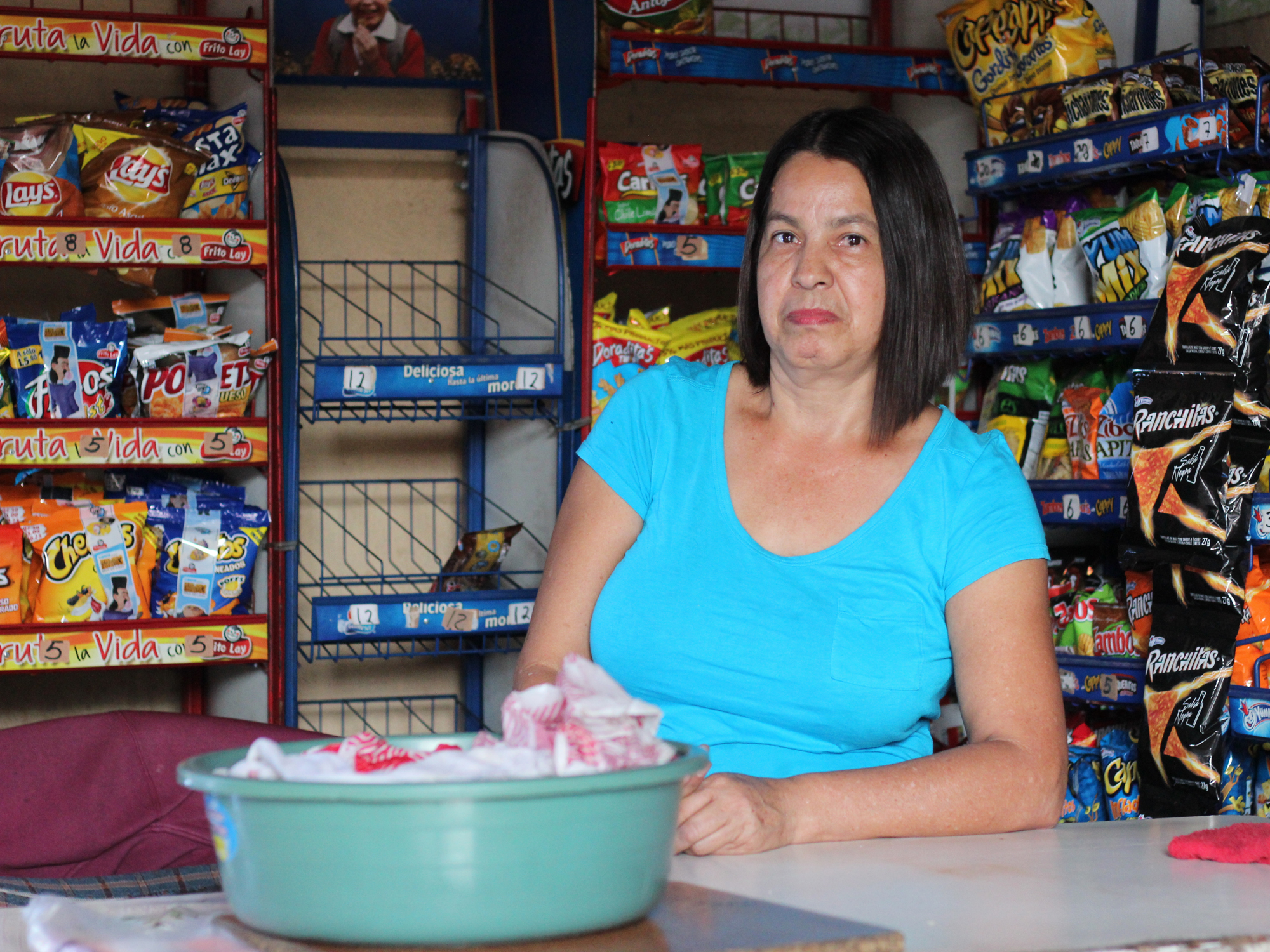Carmen Velazquéz stood behind the counter in her pulpería. Outside, rain poured beyond a short iron gate on one of the store’s two entrances.
Over the past decade, Velazquéz, 55, has managed Pulpería Jacaranda with her mother-in-law, Cristina Garcia. The store is located on a busy road on the way to El Picacho, a mountain and famous landmark in northern Tegucigalpa, Honduras.
“That’s the advantage — you have to be in a good spot to attract customers,” Velazquéz said, revealing one of her assets.
Especially, she added, the tourists who pass by to see El Picacho.
There’s a little bit of everything inside Pulpería Jacaranda — abarrotes like churros and bread, toiletries, beverages, snacks, gift wrapping paper. The white counter is chipped at the edges from age, in stark contrast to the store’s bright and shiny red exterior paint job.
“It’s a struggle,” Velazquéz said of running the business. “You keep investing to continue pushing ahead, little by little.”
Though she said she loves having a pulpería, Velazquéz’s big dream is to someday own a supermarket.
“A mercadito — it’s what I most desire,” she said. “I have searched and searched but perhaps because of the (financial) situation we’re in right now, the opportunity’s not there… but I haven’t lost hope that I will find it, and I will have it.”
The International Women’s Media Foundation supported Amaris Castillo’s reporting from Honduras as part of the Adelante Latin America Reporting Initiative.
